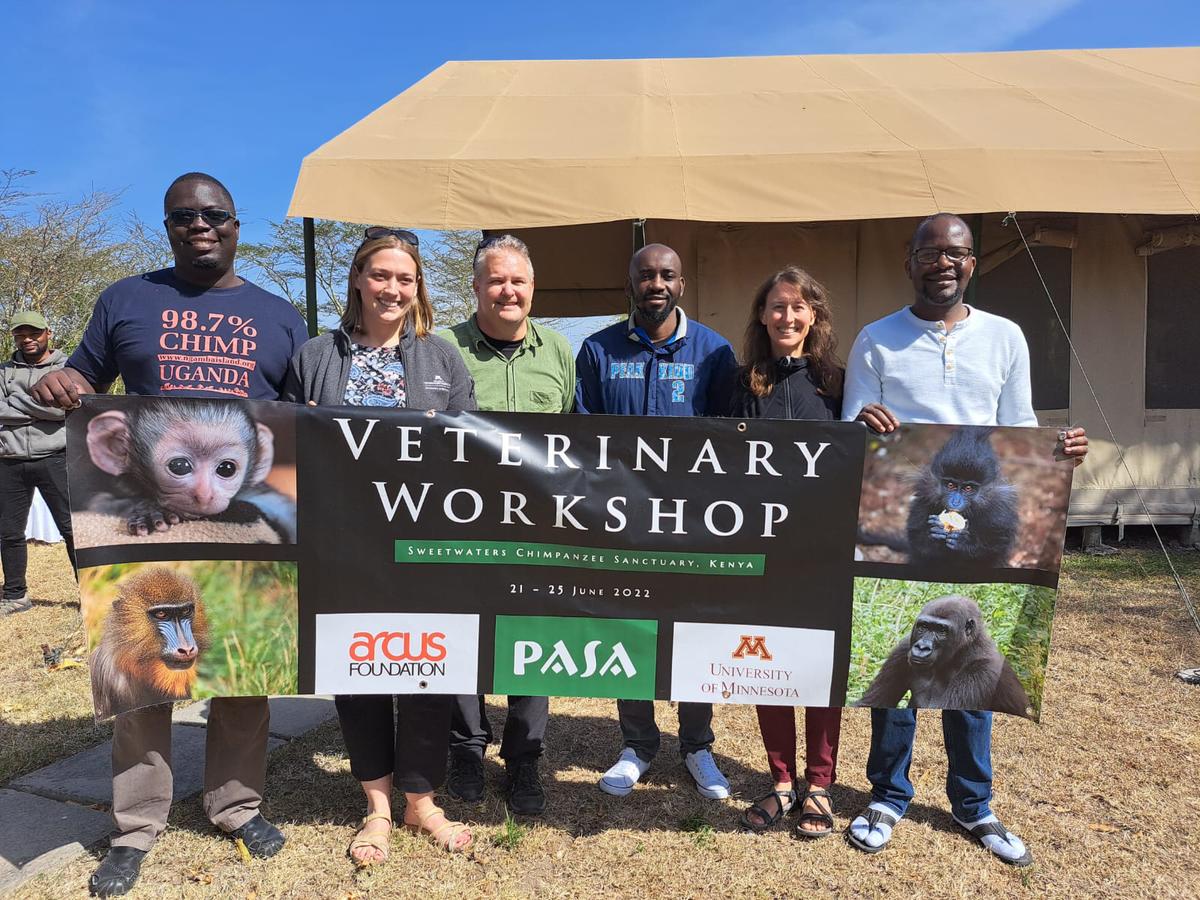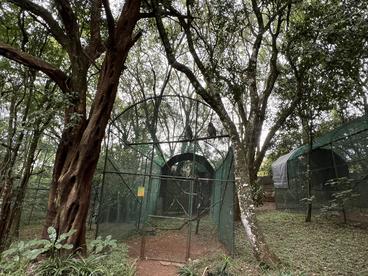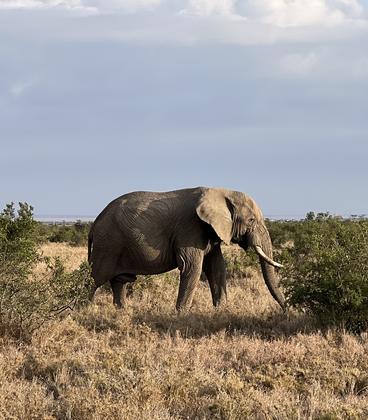
Members of the workshop facilitation team. Photo courtesy of Dr. Victoria Hall
Wild animals such as raptors don’t adhere to human borders like those outlining states and countries. They also don’t exist in a vacuum and are impacted by the human, animal, and environmental factors around them.

For these reasons, The Raptor Center’s (TRC) mission extends beyond the state of Minnesota and is applicable beyond birds of prey. While its primary focus is studying and saving raptors, its work and mission are fueled by a commitment to One Health and Ecosystem Health. The One Health approach seeks to understand the intersections of animal, human, and environmental health and improve the complex overlapping systems between them.
This recent June, TRC Executive Director Dr. Victoria Hall helped to facilitate a global workshop in Kenya, sharing her One Health expertise with participants from across Africa, Southeast Asia, the United Kingdom, Australia, and the United States.

The workshop, which included wildlife veterinarians, scientists, epidemiologists, and experts from animal sanctuaries, took pressing, real-life issues facing wildlife and reframed them through the lens of One Health. It enabled participants to identify and understand the complex systems that impact and are affected by these issues in order to better innovate solutions to protect human, animal, and environmental health.
Additionally, Hall met with wildlife partners including local rehabilitation centers, The Peregrine Fund, Kenya Wildlife Services, and national laboratories to discuss crucial issues facing raptor species in Kenya. Critical issues such as habitat changes, environmental contamination (e.g. lead poisoning and rodenticides), human/wildlife conflict, and electrocutions are global wildlife concerns. Together, people across borders can work toward making a difference and finding innovative solutions to better protect the future of all.